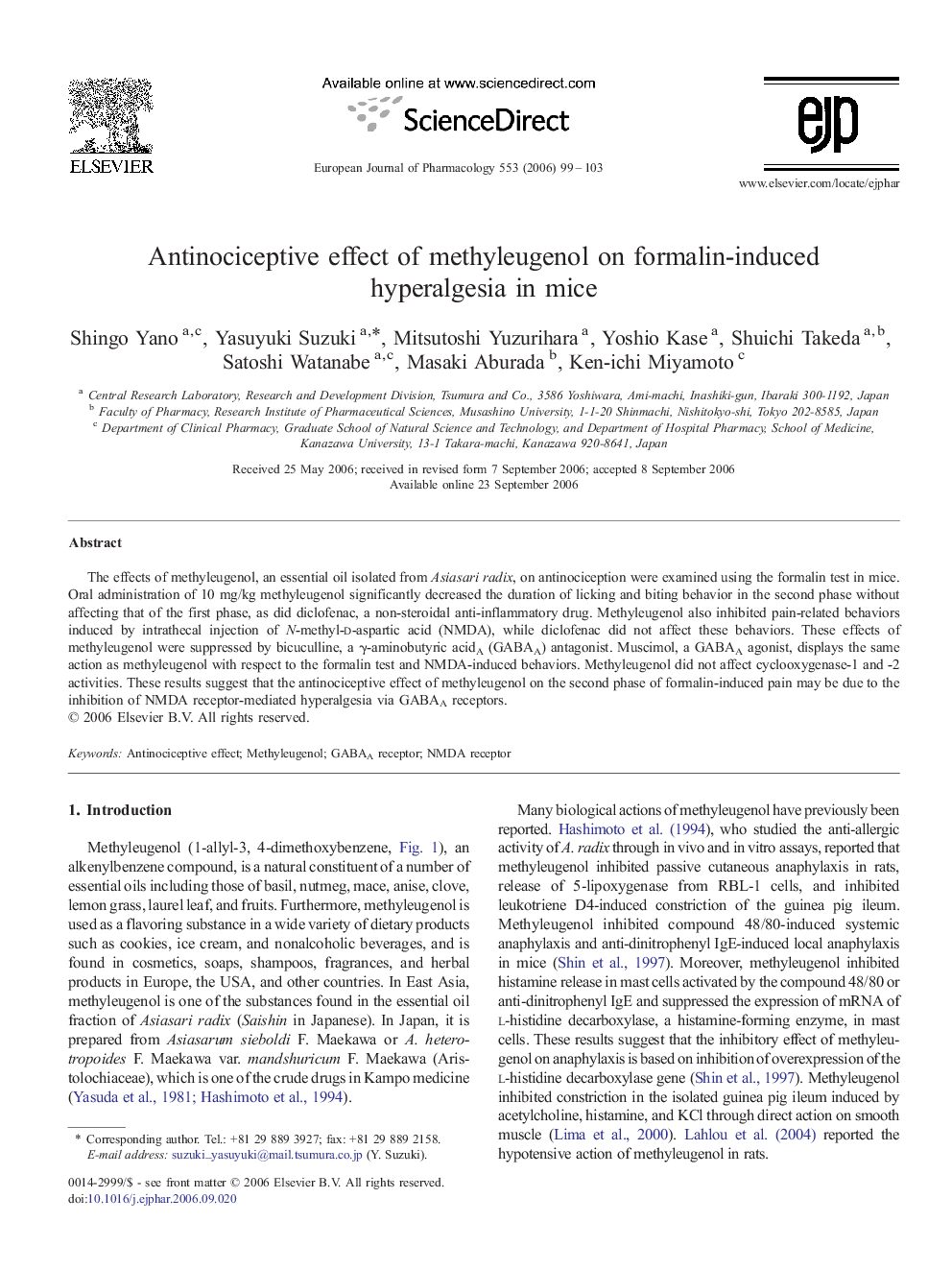| Article ID | Journal | Published Year | Pages | File Type |
|---|---|---|---|---|
| 2536555 | European Journal of Pharmacology | 2006 | 5 Pages |
The effects of methyleugenol, an essential oil isolated from Asiasari radix, on antinociception were examined using the formalin test in mice. Oral administration of 10 mg/kg methyleugenol significantly decreased the duration of licking and biting behavior in the second phase without affecting that of the first phase, as did diclofenac, a non-steroidal anti-inflammatory drug. Methyleugenol also inhibited pain-related behaviors induced by intrathecal injection of N-methyl-d-aspartic acid (NMDA), while diclofenac did not affect these behaviors. These effects of methyleugenol were suppressed by bicuculline, a γ-aminobutyric acidA (GABAA) antagonist. Muscimol, a GABAA agonist, displays the same action as methyleugenol with respect to the formalin test and NMDA-induced behaviors. Methyleugenol did not affect cyclooxygenase-1 and -2 activities. These results suggest that the antinociceptive effect of methyleugenol on the second phase of formalin-induced pain may be due to the inhibition of NMDA receptor-mediated hyperalgesia via GABAA receptors.
